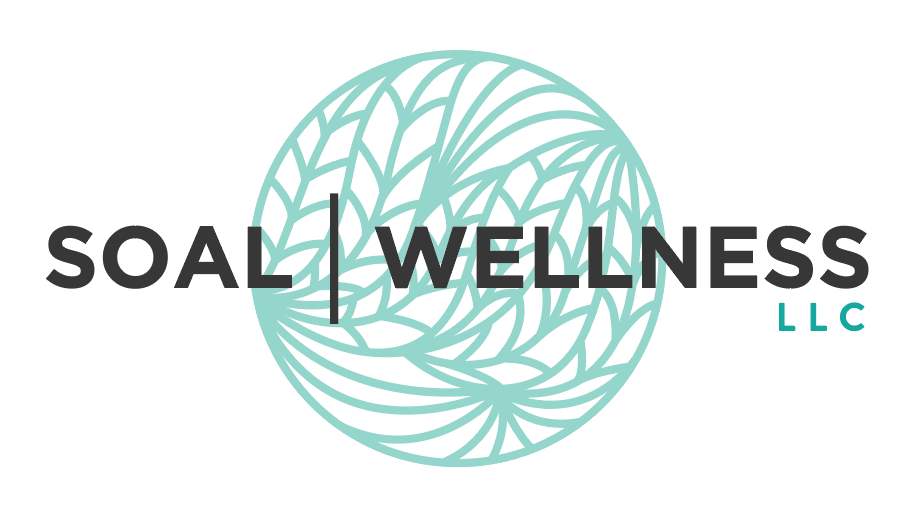Too often, people only make a trip to their doctor’s office when they’re sick. Or even worse, they rely only on urgent care when an issue arises and don’t even have a regular doctor or primary care provider. There is a lot of discussion about primary care being a lost part of our current healthcare system. Why is that? It seems that in large part, health insurance plans don’t want to pay for preventive healthcare measures, and are instead only (barely) willing to pay for addressing issues as they arise. With a growing number of our population facing chronic health concerns and weight problems, the lack of focus on Wellness Care is a serious problem. At Soal Wellness, we want you to understand the importance of “Wellness Care” and commit to regularly seeing a doctor even if you’re healthy!

What is Wellness Care, and Why Does it Matter?
To us, Wellness Care is essentially the same as primary care, and it’s essential to your overall health. At Soal Wellness, we focus on your overall wellness, rather than just offering up a band-aid to ailments like so many primary care providers do.
We get it – going to a doctor’s office regularly may seem like a chore, but it is one of the most important steps you can take to maintain your health. Seeing a doctor regularly ensures that you get the preventive care and screenings that you need to stay healthy and catch any problems early on, and helps to ensure you have a relationship formed in the event you do get sick or have a medical need.
So, how often should you see a doctor for Wellness Care? Even if you are considered healthy, you should see a doctor at least once every 1-2 years. This is true for healthy people in their twenties but becomes even more imperative for those in their thirties because much of the routine screening begins in our thirties and it’s also a time where we begin to see the early onset of health concerns. And it is certainly much easier to address health concerns early on versus waiting until problems are well established. For example, if you go in for a checkup and a doctor detects high blood pressure or elevated cholesterol levels during the physical exam, they can recommend lifestyle changes that may help reduce these numbers. Or, if something more serious is detected such as cancer or heart disease, a doctor can refer you to specialists who can provide treatment options that may save your life.

Soal Wellness is Now Offering Primary Care
At Soal Wellness, we thrive in the area of prevention, and are excited to now offer primary care services to our menu of services. We want to help you achieve the health and lifestyle you’ve always wanted and stay out of the healthcare system by focusing on wellness first. Of course, we will be there to help you when you’re unwell and in the event that you find yourself diagnosed with a chronic health concern, we can help you manage it best.
As your Primary Care Provider, we can:
- Assess your risk factors based on genetics (family history of cancer, heart disease and autoimmune disorders)
- Plan for healthy aging
- Assist with family planning
- Smoking cessation
- Weight management
- Manage chronic illness (asthma, diabetes, hypertension, hyperlipidemia, hypothyroidism, allergies, arthritis, and much more)
Part of what makes us different from other primary care providers is that to us, you’re never just a nameless client in our office. We are proud to take a personalized, holistic approach to healthcare focused on nutrition, lifestyle, and mindset.
We can’t wait to get to know you – Schedule Now To Get Started.
FAQs about Wellness Care:
What is the meaning of wellness care?
Wellness care refers to a proactive and holistic approach to maintaining and improving one’s overall well-being. It focuses on preventive measures and lifestyle choices that promote physical, mental, and emotional health. By emphasizing self-care, nutrition, exercise, stress management, and regular check-ups, wellness care aims to enhance the quality of life and prevent potential health issues.
What are examples of wellness care?
Examples of wellness care include regular exercise routines, nutritious eating habits, stress reduction techniques like meditation or yoga, getting sufficient sleep, maintaining a healthy weight, and engaging in preventive health screenings. Additionally, it involves adopting positive mental attitudes, nurturing healthy relationships, and actively pursuing personal growth and self-care activities.
What are the 4 types of wellness?
The four types of wellness commonly recognized are physical wellness, which encompasses physical fitness and overall health; mental wellness, focusing on cognitive and emotional well-being; social wellness, emphasizing healthy relationships and connections with others; and spiritual wellness, which involves finding meaning, purpose, and inner peace in life.
What are the benefits of wellness?
Wellness offers numerous benefits for individuals, including increased energy levels, improved physical fitness, enhanced mental clarity and focus, reduced stress levels, better sleep quality, stronger immune system, improved mood and emotional well-being, increased self-confidence, and a decreased risk of developing chronic diseases. It empowers individuals to lead fulfilling lives and achieve a state of overall well-being.
What are the most popular wellness benefits?
The most popular wellness benefits commonly sought after include increased energy and vitality, improved physical fitness and strength, stress reduction and relaxation, weight management and healthy body composition, improved mental focus and clarity, better sleep quality and restful nights, enhanced emotional well-being and resilience, and overall improved quality of life.
What are 5 benefits of good health and wellness?
Good health and wellness offer a wide range of benefits, such as reduced risk of chronic diseases like heart disease and diabetes, improved immune system function, increased longevity and lifespan, better mental and emotional well-being, and higher productivity and performance in daily activities. Additionally, it promotes higher levels of energy, improved sleep quality, and a more positive outlook on life.
What are the types of wellness?
The types of wellness encompass physical wellness (fitness, nutrition, and health), mental wellness (cognitive and emotional well-being), social wellness (relationships and connections), spiritual wellness (finding purpose and inner peace), occupational wellness (satisfaction in work-life balance), intellectual wellness (lifelong learning and mental stimulation), and environmental wellness (sustainability and connection to nature).
What are the 8 benefits of wellness?
The benefits of wellness can be experienced across various dimensions of life. They include improved physical health, enhanced mental and emotional well-being, increased social connections and support, greater spiritual fulfillment, improved work-life balance, expanded intellectual growth, heightened environmental awareness, and an overall better quality of life. Prioritizing wellness leads to a holistic and fulfilling existence.

